
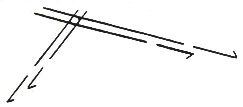

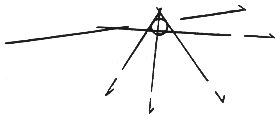

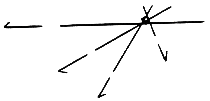
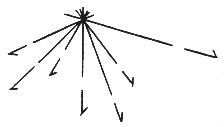
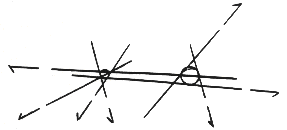
The following are illustrations of typical radiant situations as seen on plot charts. Both acceptable and unacceptable cases are given. Likely accuracy ratings are also given where applicable. As may often be the case, accuracy would be lowered when the radiant is entangled with other radiants or is determined over two or more nights.
| NOT ACCEPTABLE -- with 3 parallel paths, any 4th meteor path crossing the other three would form a radiant. |  |
| NOT ACCEPTABLE -- 2 pairs of parallel paths are essentially just 2 single paths. | 
|
| D or C -- minimal evidence of a radiant, 3 different projections and a 4th plot for the minimum requirement. |  |
| C or B -- diverging paths good but size of radiant large; one meteor much too long to include. |  |
| B or A -- divergence is still good, and size small. |  |
| A -- very small size, divergence excellent. |  |
| NOT ACCEPTABLE -- this many meteors coming from a point is essentially impossible, shows a preconceived notion of the radiant location. |  |
| A pair of entangled radiants (2 meteors projecting through both). D for large size and only 2 exclusive meteors, A for small size and 3 exclusive meteors. |  |